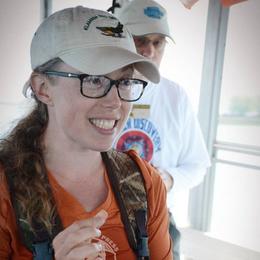Check out these upcoming community science opportunities hosted by MI Birds partners across the state:
The Great Backyard Bird Count (February 15-18): This 4-day event coordinated by Audubon and the Cornell Lab of Ornithology invites people all over the world to record their bird observations for at least 15 minutes, in their own backyard! All ages and birding levels are welcome and you can participate in any or all of the four days of this international birding event! Last year, over 190,000 people participated in this global bird count! Michigan was among the top 10 states to participate last year, with a total of 3,890 checklists submitted! Learn how to participate in this winter community science bird count, here.
Project FeederWatch (various dates, November through April): This project is organized by Cornell Lab of Ornithology and Bird Studies Canada. Much like the Christmas Bird Count, this winter community science project runs from November through April! Interested in participating? Here’s what you need to know!
- All age levels and birding skills are welcome!
- You can monitor your bird feeder as frequently or infrequently as you’d like; you create your schedule!
- Materials you will need: bird feeder, bird bath or bird-enticing plants.
- There is an annual participation fee of $18 which goes towards materials (your research Kit, which they will send you), staff support, web design, data analysis and their year-end report.
- Your Research Kit will include a welcome letter, a FeederWatch Handbook and Instructions, a full-color poster of common feeder birds, and a bird watching calendar to help you track your FeederWatch days.
To participate in FeederWatch, register here.
There's still time to participate in Audubon's Climate Watch or Detroit Audubon's Winter Waterfowl Count as well! For more information on these two community science bird counts, click here.
This is a friendly reminder that after January 31, 2019, deer and elk feeding will not be allowed in the Lower Peninsula in an effort to prevent deer gathering around a food source, which increases the potential spread of Chronic Wasting Disease (CWD). We encourage you to use tube, hopper and suet bird feeders rather than putting seed directly on the ground or using platform feeders, which tend to attract deer and other unwanted guests. In addition, mess-free bird seed options are available to purchase at stores, which can help keep the ground clean. You can also prevent deer access to your feeders by fencing around your feeders, if possible.
If you have any questions or concerns about the new regulations going into effect on January 31st, please contact your local DNR Customer Service Center.
MI Birds is a public outreach and education program created by Audubon Great Lakes and Michigan Department of Natural Resources. Birders and hunters share similar conservation values, but rarely cross paths. MI Birds aims to bridge the divide, and deepen all Michiganders engagement in the understanding, care, and stewardship of public lands that are important for birds and local communities.







